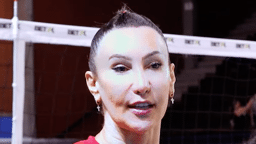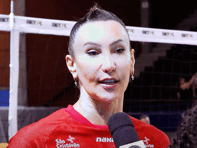 The successful and sometimes controversial novelist Anne Rice offers the following advice to aspiring writers: write the book you want to read and that doesn’t yet exist. Another piece of advice she has: don’t listen to other peoples’ advice.
The successful and sometimes controversial novelist Anne Rice offers the following advice to aspiring writers: write the book you want to read and that doesn’t yet exist. Another piece of advice she has: don’t listen to other peoples’ advice.
I wasn’t aware of these words of wisdom at the time, but my instincts told me to follow both of those guiding principles when I started writing the book that has become my debut novel, The Fall.
 The successful and sometimes controversial novelist Anne Rice offers the following advice to aspiring writers: write the book you want to read and that doesn’t yet exist. Another piece of advice she has: don’t listen to other peoples’ advice.
The successful and sometimes controversial novelist Anne Rice offers the following advice to aspiring writers: write the book you want to read and that doesn’t yet exist. Another piece of advice she has: don’t listen to other peoples’ advice.
I wasn’t aware of these words of wisdom at the time, but my instincts told me to follow both of those guiding principles when I started writing the book that has become my debut novel, The Fall.
The Fall is set largely in the world of college sports and is told through the perspective of three college seniors—two guys and a girl—who find themselves thrown into an unlikely triangle. Self-discovery, sex, tears, music, football and friendships ensue. Also, some skinny dipping. College is a fantastically interesting time in life, filled with terrifying and hilarious moments that amount to a crash course on identity. And identity—in ways funny, serious and inspirational—is the subject at the core of The Fall.
 Both sports and writing are central to my identity, and both framed the context of my struggles with identity as I decided to come out in college. I came out as a sophomore on the University of Utah’s ski team. I knew no other out athletes. It was only after I wrote an article for Outsports in 2003 about my experience being an openly gay college athlete, that I was flooded with responses—many from anonymous closeted college athletes—and I began to realize that my story wasn’t so uncommon. Or, at least, it shouldn’t have to be.
Both sports and writing are central to my identity, and both framed the context of my struggles with identity as I decided to come out in college. I came out as a sophomore on the University of Utah’s ski team. I knew no other out athletes. It was only after I wrote an article for Outsports in 2003 about my experience being an openly gay college athlete, that I was flooded with responses—many from anonymous closeted college athletes—and I began to realize that my story wasn’t so uncommon. Or, at least, it shouldn’t have to be.
Today, fortunately, it isn’t. Now Outsports hosts an entire archive of coming out stories like mine. Much like the recent “It gets better” campaign, seeing the power that these stories have to help others understand their place in the world motivated me to keep writing.
One of the most cliché sports clichés is that sports prepares you for life. Whatever else you think about clichés—and in writing I think they are best avoided—they exist because they hold some credible thread of truth. Sports has informed many aspects of my life, but it has provided me with some habits particularly useful for writing.
My routine as a writer, which involves getting up in the morning and spending a few hours putting words into sentences and sentences into paragraphs, is strikingly similar to the routine I maintained for years as a serious cross-country skier, which involved getting up in the morning and shuffling around on snowy trails in the woods for a few hours, putting one ski ahead of the other until a couple dozen kilometers were behind me.
Novel-writing is an endurance sport. Mostly you put your head down and just try to keep up the pace. But every once in a while you cross a finish line. And it feels pretty good.
I’m excited to share The Fall with Outsports readers—more than anyone else—because it is this community I most identified with when I set out to write the book I wanted to read but that didn’t exist.
Now it exists. I hope you’ll check it out.
Ryan Quinn lives in Los Angeles. Find his book at Amazon or at www.ryanquinnbooks.com.







































